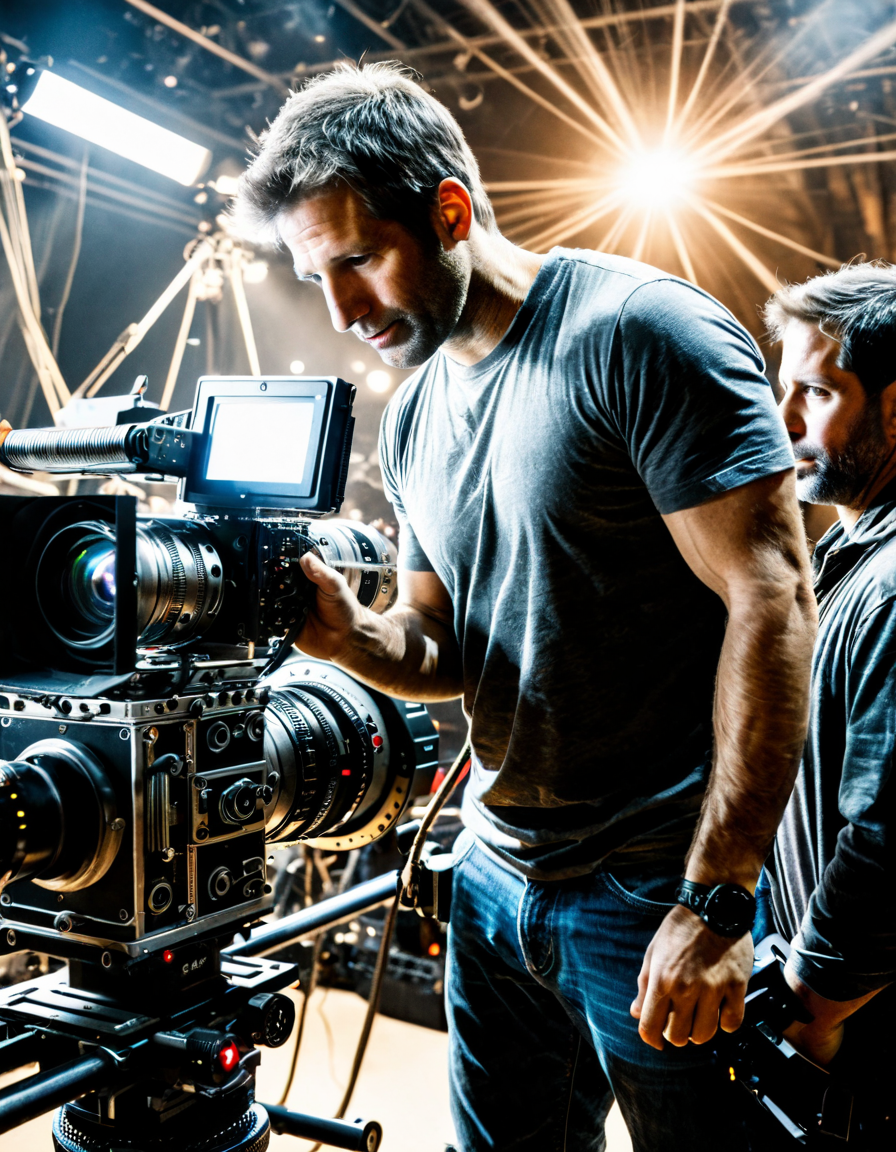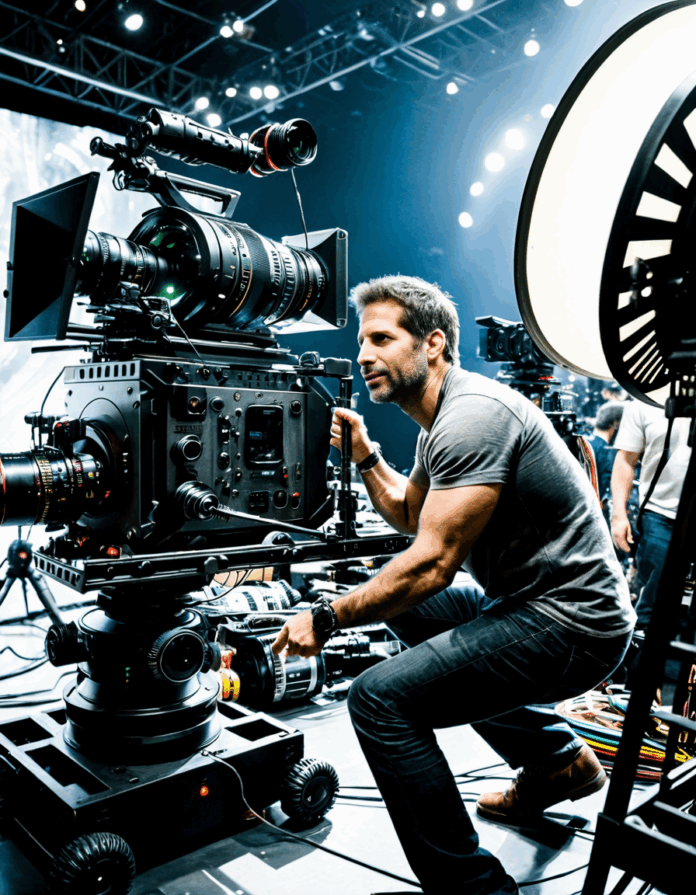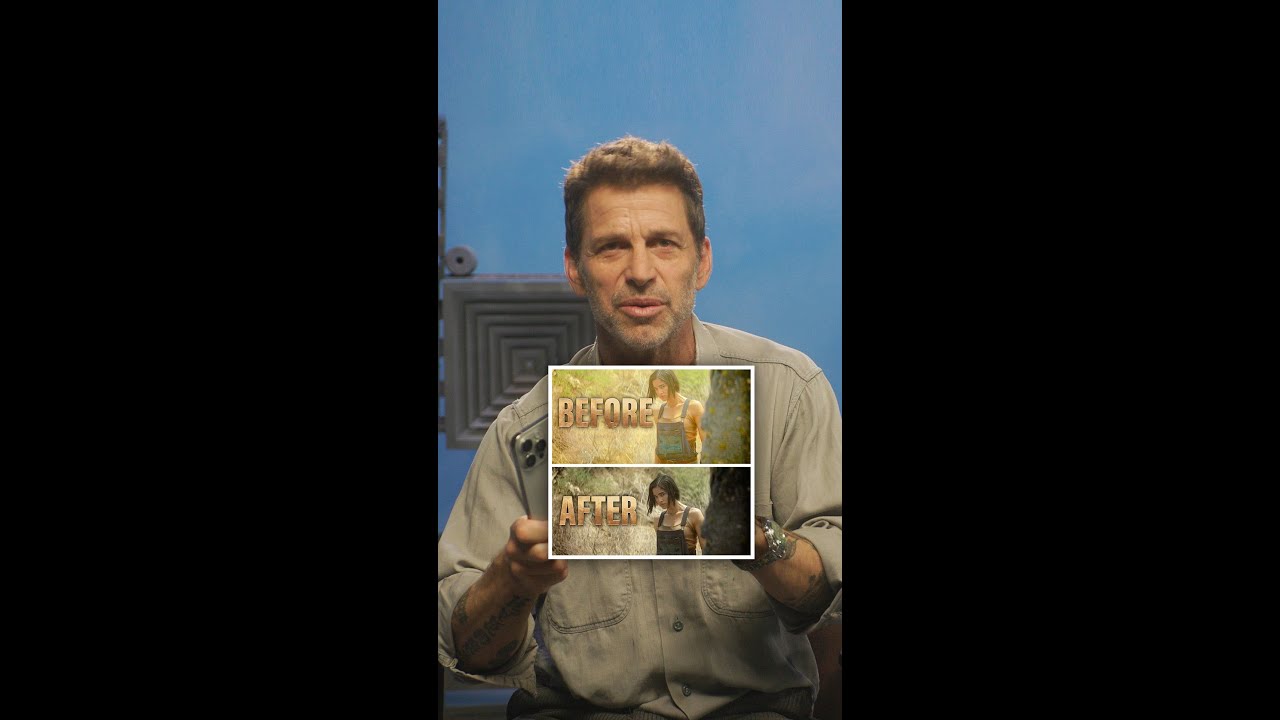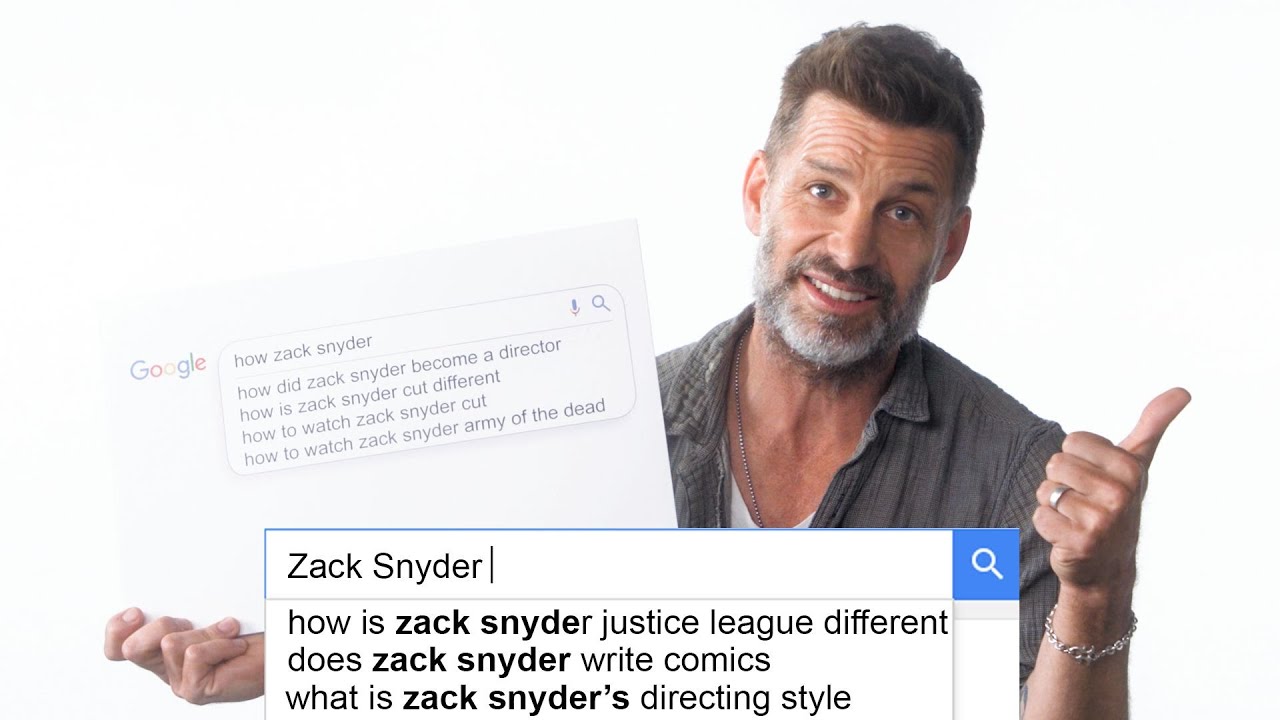Zack Snyder, an undeniably influential figure in modern cinema, has revolutionized the blockbuster landscape with his distinctive style and bold storytelling. Renowned for films like “300” and “Man of Steel,” Snyder’s approach constantly grapples with moral complexity and dramatic visuals. Throughout his two-decade career, he has left an indelible mark on the film industry, proving to be a polarizing yet significant voice amid a rapidly changing cinematic environment.
As we delve into the evolution of Zack Snyder’s cinematic style, we’ll explore his visual storytelling techniques and the recurring themes of heroism and morality he intertwines in his narratives. These elements not only define his films but also set them apart in today’s entertainment ecosystem.
The Evolution of Zack Snyder’s Cinematic Style
Visual Storytelling Techniques
Snyder has a flair for creating visually compelling narratives. He often employs slow-motion sequences and dramatic lighting, and his color palette tends to lean toward darker, somber tones. Take “300,” for example; the film showcases a mesmerizing blend of high-definition visuals paired with a stylized action approach.
His deft use of framing and shot composition draws viewers into his unique atmosphere. It’s this meticulous craftsmanship that captivates audiences, making them feel every punch and heartache. Whether it’s the battle scenes in “Zack Snyder’s Justice League” or the chilling moments in “Man of Steel,” Snyder’s techniques evoke a visceral reaction, cementing his status as a visual storyteller.
Themes of Heroism and Morality
Central to Zack Snyder’s films are profound explorations of heroism and morality. Unlike many filmmakers who present clear-cut heroes and villains, Snyder thrives in the gray areas of character development. In “Watchmen,” he challenges what it means to be a hero, presenting morally ambiguous characters that resonate with contemporary audiences.
By confronting traditional superhero archetypes, Snyder invites viewers to question their own beliefs about morality. His works often force audiences into uncomfortable discussions about good and evil. Such complex themes distinguish him from other blockbuster directors, making his films rich with depth and philosophical inquiry.

Top 5 Epic Blockbuster Films by Zack Snyder
Zack Snyder’s filmography is a treasure trove of blockbusters that have not only showcased his skills but also changed the industry. Here are five standout films that define his cinematic journey:
300 is a groundbreaking film that redefined the action genre. With its striking visuals and exhilarating fight sequences, Snyder’s adaptation of Frank Miller’s graphic novel resonated with audiences, grossing nearly double its production budget.
As an ambitious adaptation of the iconic graphic novel, Watchmen faced mixed reviews upon release. However, over time, it gained appreciation for its intricate storytelling and well-developed characters, showcasing Snyder’s commitment to material fidelity.
Revamping the Superman legacy, Man of Steel reintroduced the iconic character for a modern audience. Snyder’s take on the beloved superhero engaged viewers with a fresh tone, paving the way for the DCEU.
This much-anticipated reimagining of the theatrical release generated overwhelming fan support. By expanding on character development and deeper narratives, it displayed Snyder’s original vision, making it a landmark moment in cinematic history.
Branching into the zombie genre, Army of the Dead demonstrated Snyder’s versatility. Blending nail-biting tension with heist elements, this film was not only financially successful but also cultivated a loyal fanbase that continues to grow today.
The Influence of Seth Meyers and Seth MacFarlane on Snyder’s Work
While Seth Meyers and Seth MacFarlane may not have collaborated directly with Zack Snyder, their commentary on his films has undeniably affected public perception. Through satire and critique, these figures shed light on the complexities in Snyder’s storytelling, enhancing our understanding of his work and its cultural impact.
Seth Meyers: Late Night Reflections
On his late-night show, Late Night with Seth Meyers, Meyers frequently scrutinizes the direction of Snyder’s films. His humorous critiques serve as a cultural touchstone, exposing the underlying dichotomies between Snyder’s serious approach and the typical superhero film archetype. This commentary reveals how Snyder plays with genre conventions, prompting audiences to rethink their expectations for comic book adaptations.
Seth MacFarlane: Parody and Satire
Seth MacFarlane, known for his satirical take on various subjects, has referenced Snyder’s works in shows like Family Guy. These parodies add a humorous layer to Snyder’s serious narratives, allowing audiences to engage with the themes in a lighter way. By inviting laughter, MacFarlane encourages viewers to examine the deeper meanings behind Snyder’s cinematic choices, creating a unique dialogue around his films.
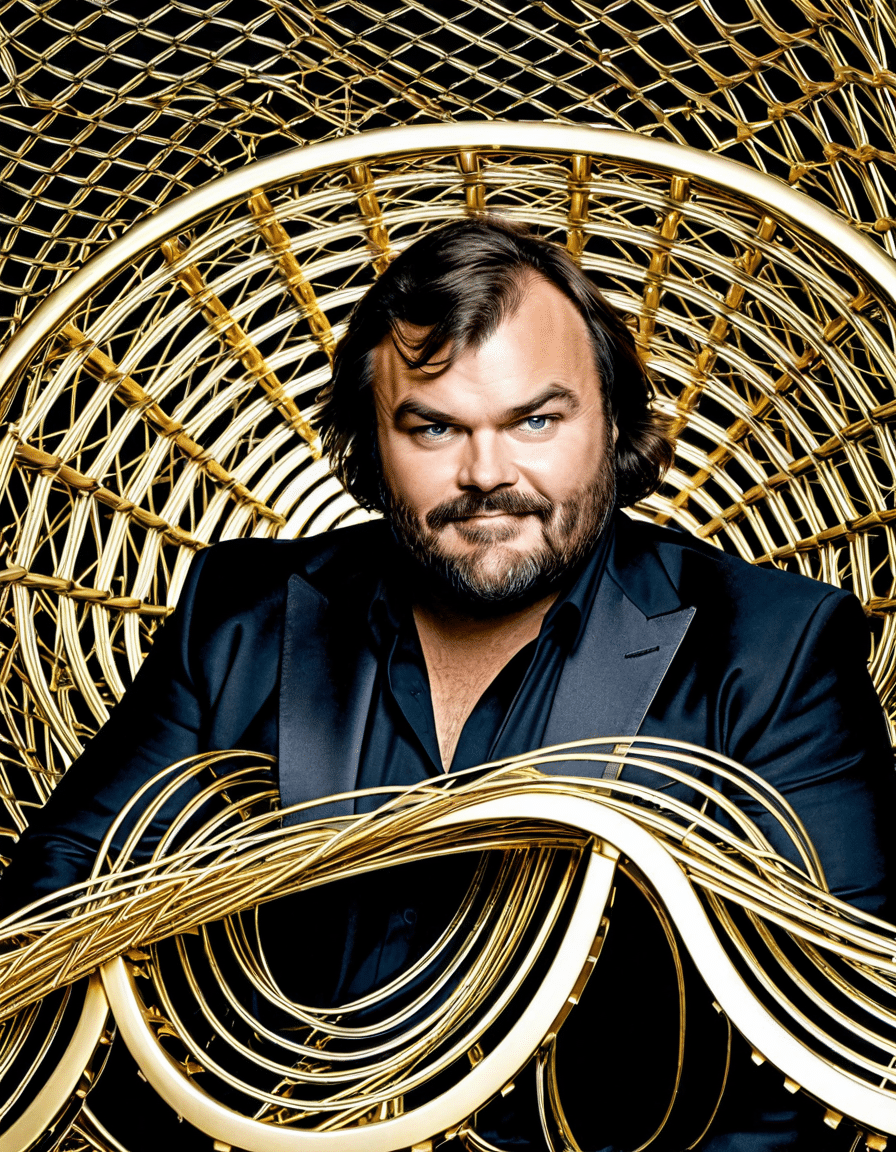
The Future of Zack Snyder’s Cinematic Vision
As we look toward 2026, Zack Snyder is poised to continue influencing the film industry with his distinctive vision. His recent venture into television with “Army of the Dead: Lost Vegas” showcases his adaptability and eagerness to embrace narrative expansion beyond traditional films.
Potential Collaborations and Projects
Snyder has a slate of anticipated projects on the horizon. Continued partnerships with platforms like Netflix hint at exciting directions for storytelling. Whether exploring live-action adaptations or animated formats, Snyder’s willingness to push boundaries indicates a bright future ahead.
The rise of streaming services has changed how audiences engage with content. This new environment could inspire Snyder to delve into innovative storytelling avenues, making his films increasingly relevant in an evolving cultural landscape.
Vision Through a Lens of Innovation
Zack Snyder’s trajectory as a filmmaker illustrates a relentless pursuit of his artistic vision. Through groundbreaking visual techniques, compelling narratives, and insightful critiques from voices like Seth Meyers and Seth MacFarlane, Snyder remains a complex and fascinating figure in modern cinema. As he continues to explore new storytelling mediums and genres, audiences will undoubtedly be eager to witness the evolution of Snyder’s unique cinematic artistry. As he pushes the envelope in filmmaking, he leaves behind a legacy that will inspire future generations.
In the grand narrative of cinematic storytelling, Snyder’s journey reveals not just his artistry, but the power of film to spark conversation and challenge perceptions. The future undoubtedly holds exciting possibilities for Zack Snyder, as he ushers in a new era of captivating narratives.
Zack Snyder: Fun Trivia About the Visionary Filmmaker
A Trailblazer in Film
Zack Snyder’s journey in filmmaking is nothing short of remarkable. Did you know that his epic flicks often draw inspiration from comics and mythology? This love for storytelling is akin to the imaginative worlds seen in classic animated films like Monster Inc, where creativity takes center stage. Fun fact: Snyder’s distinctive visual style has become iconic, leading to his films being compared to legendary series like the best series on Amazon Prime, which is known for its bold narratives and stellar cinematography. If you ask any fan of epic narratives today, Snyder’s work truly belongs in the pantheon of great directors, much like how Valentina Shevchenko dominates her sport with skill and precision.
Diving Deep into Dark Themes
Snyder isn’t afraid to tackle dark themes in his storytelling. His rendition of the superhero genre brought a somber tone that echoed the intensity found in films like Kursk, which explores real human tragedy. Additionally, Zack has shown an affinity for assembling incredible ensemble casts—similar to the dynamic characters found in impactful dramas like Black Cake Episodes. It’s fascinating how Snyder blends heavy themes with blockbuster entertainment, making audiences think while they’re on the edge of their seats.
Pop Culture Connections
Snyder’s influence extends beyond just films; he’s been a cultural touchstone in Hollywood. His films often invoke discussions about justice and morality, much like the debates sparked by Star Wars movies in order, which explore what it means to be heroic. Plus, his projects have garnered a loyal following that rivals the fanbase of globally recognized figures, including iconic personalities like Robbie Marley. Snyder’s ability to engage audiences goes hand-in-hand with how we connect over stories, whether we’re sharing tales of cuentos infantiles para dormir or debating the latest blockbuster. Indeed, the cinematic universe he crafts is enticing and communal, pushing viewers to join the conversation.
